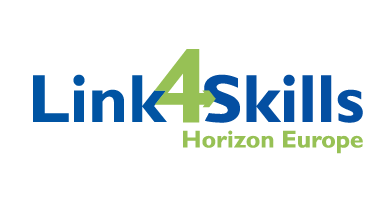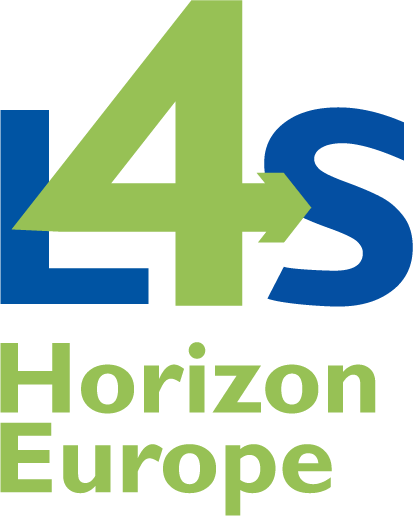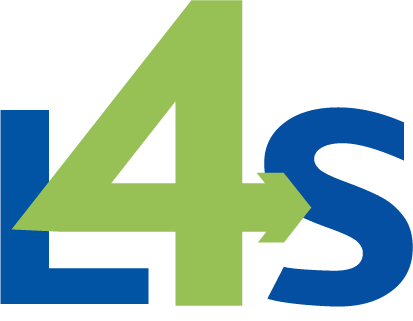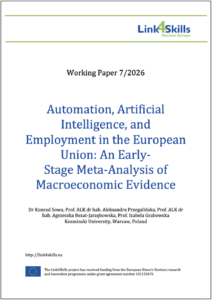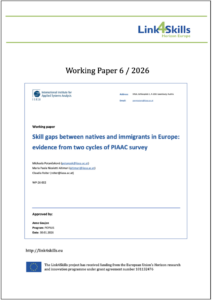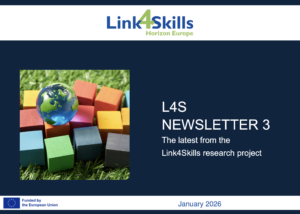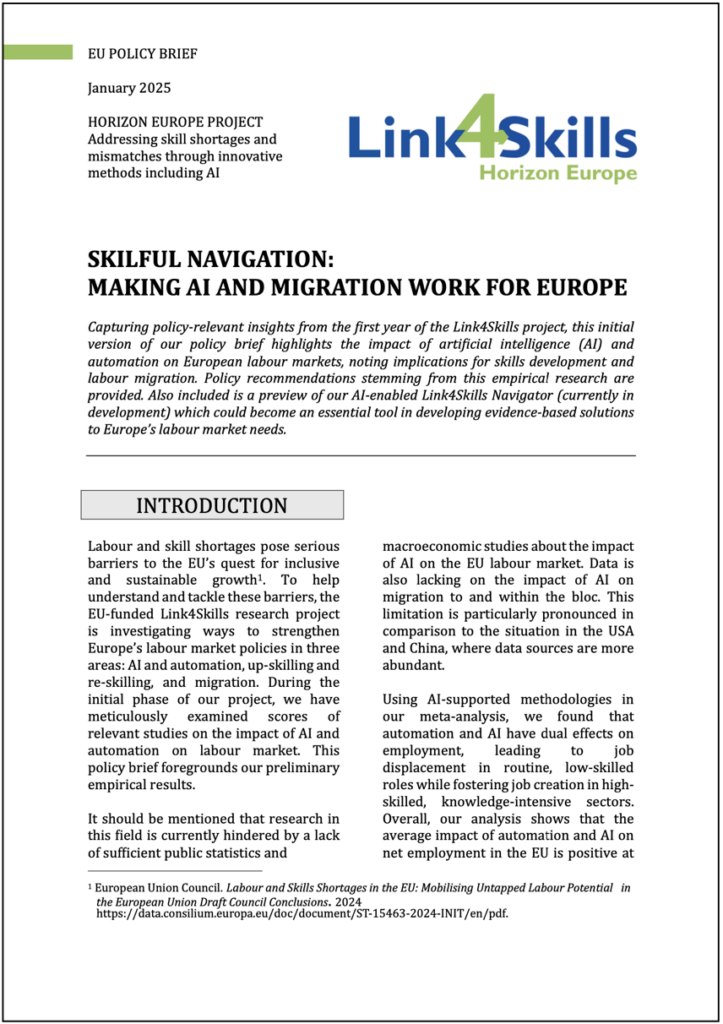Policy Brief
Main Policy Challenge
The rapid advancement of artificial intelligence (AI) and automation technologies is transforming labour markets across the European Union (EU). While these technologies hold potential for addressing persistent skill shortages, they simultaneously exacerbate labour market inequalities. Migrants, who play a critical role in filling skills gaps, are particularly vulnerable to job displacement in routine, low-skilled roles. The Link4Skills project examines the interplay between automation, AI, and migration, providing evidence-based insights to guide policy strategies that foster an inclusive and adaptive labour market.
Key Research Findings
- Automation displaces routine, low-skilled jobs while fostering growth in high-skilled sectors, contributing to a net employment gain of 1.5–2.0% in the EU.
- Labour market polarization disproportionately benefits skilled workers and technologically advanced regions, deepening economic inequalities.
- AI-driven hiring practices can reinforce systemic biases, limiting opportunities for vulnerable groups, including migrants.
- Migration Skill Corridors offer a framework to address skill shortages through circular and multi-directional migration flows.
Top-line Recommendation
Policymakers must adopt comprehensive strategies that integrate workforce reskilling, inclusive migration policies, and technological readiness initiatives to balance the benefits of AI and automation with equity and social inclusion.
